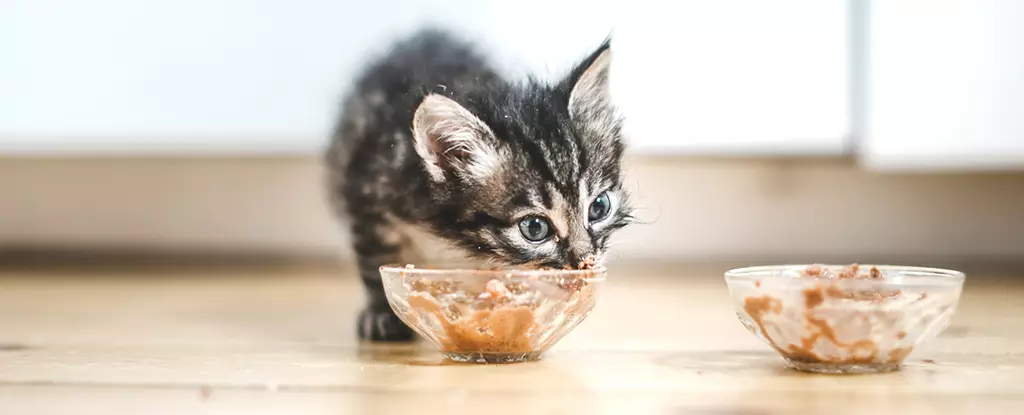The recent surge in bird flu cases affecting domestic cats in Los Angeles County has raised alarms among pet owners and public health officials alike. At least six cats have succumbed to the H5N1 virus, with several others exhibiting symptoms linked to this avian influenza strain. Tragic stories are emerging from households where cat owners have lost beloved pets after their feline companions consumed raw pet food or milk contaminated with the virus. This unfortunate situation underscores the risks associated with feeding raw diets to indoor cats, particularly given the current landscape regarding food safety and animal health.
The most significant outbreak has been traced back to commercially available raw pet food, specifically the ‘Monarch Raw Pet Food’ brand, which was found to contain live H5N1 virus particles. One household, owning five cats, experienced devastating losses when two felines fell gravely ill after consuming this product. All five cats displayed signs of a sudden health decline, with four suffering from severe respiratory issues. Veterinarians faced difficult decisions regarding care, culminating in tragic euthanasia for two of the most affected cats. This situation serves as a cautionary tale for pet owners, particularly those inclined to feed their cats raw diets, emphasizing the need for greater awareness about the potential hazards lurking within certain food products.
As investigations continue, other households have reported similar experiences, with a single-cat household also confirmed to have an H5N1 case after consuming raw pet food. The situation has been exacerbated by the involvement of raw milk intended for human consumption, which led to additional feline fatalities. The LACDPH has confirmed that these deaths were linked to contaminated milk that had been recalled due to bird flu concerns.
This small but troubling outbreak highlights not only the risks faced by domestic pets but also the broader implications for public health. Historically, avian influenza is primarily a concern for birds and poultry; however, its recent appearance in mammals, including dairy cows, raises questions about its potential to mutate and create new transmission routes among various species. While there is currently no evidence to suggest cat-to-cat or human transmission of the virus, the mere possibility underscores the importance of maintaining vigilance and adhering to food safety guidelines.
According to the LACDPH, the general public remains at low risk for H5N1 infection, but heightened awareness is critical. For individuals who regularly interact with animals or deal with wild birds, the risk increases, thereby necessitating extra caution. Pet owners are advised to refrain from providing raw meat, dairy, and poultry products to their pets as these diets can introduce various health risks beyond the threat of H5N1.
Public health agencies recommend regularly checking for food recalls and sharing this vital information with fellow pet owners. The FDA’s Recalls, Market Withdrawals, & Safety Alerts website serves as an accessible resource, allowing individuals to remain informed about potential hazards in pet food products. This proactive approach can help mitigate risks and prevent further incidents.
As the concern over H5N1 continues to grow, pet owners must be educated about the symptoms that may indicate exposure to bird flu in their animals. Severe lethargy, loss of appetite, respiratory distress, and neurological signs like disorientation and vision problems should raise red flags. Prompt attention to a pet’s health, particularly in relation to potential exposure to contaminated food products, is crucial for early detection and treatment.
The recent cases of H5N1 infections among cats in Los Angeles County serve as a wake-up call for pet owners. With the ever-evolving nature of zoonotic diseases and emerging public health threats, it is critical to remain informed and vigilant. By re-evaluating feeding practices and educating themselves about the risks associated with raw diets, pet owners can better safeguard the health of their beloved companions while simultaneously contributing to the broader effort of controlling potential outbreaks that could affect both pets and humans alike.



Leave a Reply